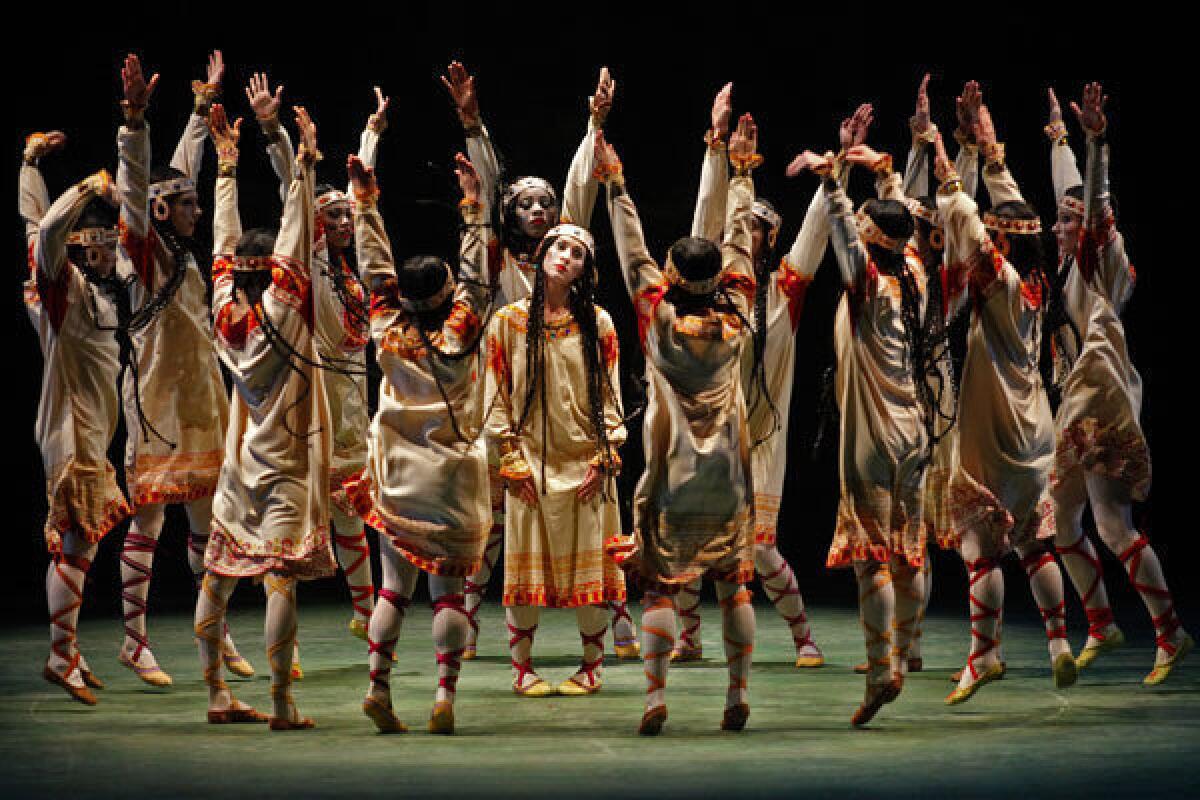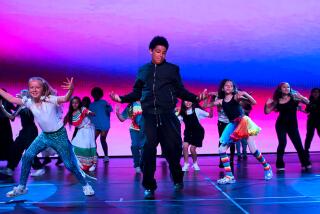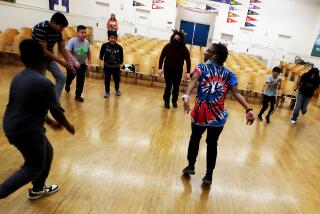L.A. Unified aims to revive arts education

Learn Civil War history by performing a play? Study fractions through exploration of musical scores?
After five years of brutal cuts in arts education, Los Angeles Unified is gearing up to bring more music, dance, theater and visual arts into core academic classes under a three-year, $750,000 initiative to be announced Thursday by the Los Angeles nonprofit group funding the effort.
The Los Angeles Fund for Public Education plans to announce the first grant of $150,000 to the Music Center, which will train 20 teachers how to integrate the arts into classrooms at five L.A. middle schools: Sun Valley, San Fernando, Adams, Berendo and South Gate.
“We’ve got to inject joy back into the school day,” said Mark Slavkin, a former L.A. school board member who directs education programs for the Music Center. “We’re losing lots of kids who are being talked to and lectured at as they get through the testing regimen.”
The initiative is the latest move to restore arts in L.A. Unified, which has slashed funding for those programs by 41% since 2008 and now allots just 2% of elementary school student time to the arts.
In October, the L.A. school board directed the district to craft a five-year “Arts at the Core” plan that would nearly double such funding to its 2007-08 level of $32 million. Among other things, the plan aims to restore some traveling arts teachers, who spread their time among multiple elementary schools; their numbers have been slashed by half to just over 200 last year.
But a chief thrust is to incorporate art into math, science, English and social studies classes — in part to shield it from future budget cuts, district officials said.
The program will kick off with introductory training by the Music Center next month. Slavkin said artists and teachers will brainstorm ways to connect academic lessons to “The Rite of Spring,” the 1913 ballet and orchestral concert work by Russian composer Igor Stravinsky.
“We’re not going to convert an eighth-grade English teacher into an experienced dance teacher ... but we hope to get the juices flowing,” Slavkin said.
Research shows that arts education helps promote creative thinking and particularly benefits low-performing students.
A 2011 report by the President’s Committee on the Arts and the Humanities cited more than a decade of studies that consistently found that arts education boosted student achievement, motivation and attendance. One 2009 study that followed students over several years, for instance, found that low-income students who had been involved in the arts were more likely than their uninvolved peers to have attended and done well in college, found good jobs, volunteered and voted.
“This powerful method of instruction helps students engage in their studies, retain more and become the creative problem-solvers needed in our global economy,” Megan Chernin, chief executive of the Los Angeles Fund for Public Education, said in a statement.
Last fall, the organization launched a $4-million campaign to raise awareness about the importance of arts education that included artworks on public buses and other locations and endorsements by such artists as Justin Bieber and Barbara Kruger.
Dan Chang, the group’s executive director, said one aim was to redress a “drastic disparity” in access to arts education for L.A. Unified students. The ratio of middle school students to art teachers in the district is 413 to 1, compared with 68 to 1 in Beverly Hills Unified, he said.
The group decided to focus on middle schools because they are the most in need of arts education, Chang said. Elementary schools still have some traveling arts teachers, while all high schools have an arts program because both the University of California and California State University systems require at least one year of fine arts for admission.
“We would like to do anything we can to give students more equitable access to arts education,” he said. “It will take time, but we know there’s a big payoff.”
More to Read
Sign up for Essential California
The most important California stories and recommendations in your inbox every morning.
You may occasionally receive promotional content from the Los Angeles Times.











